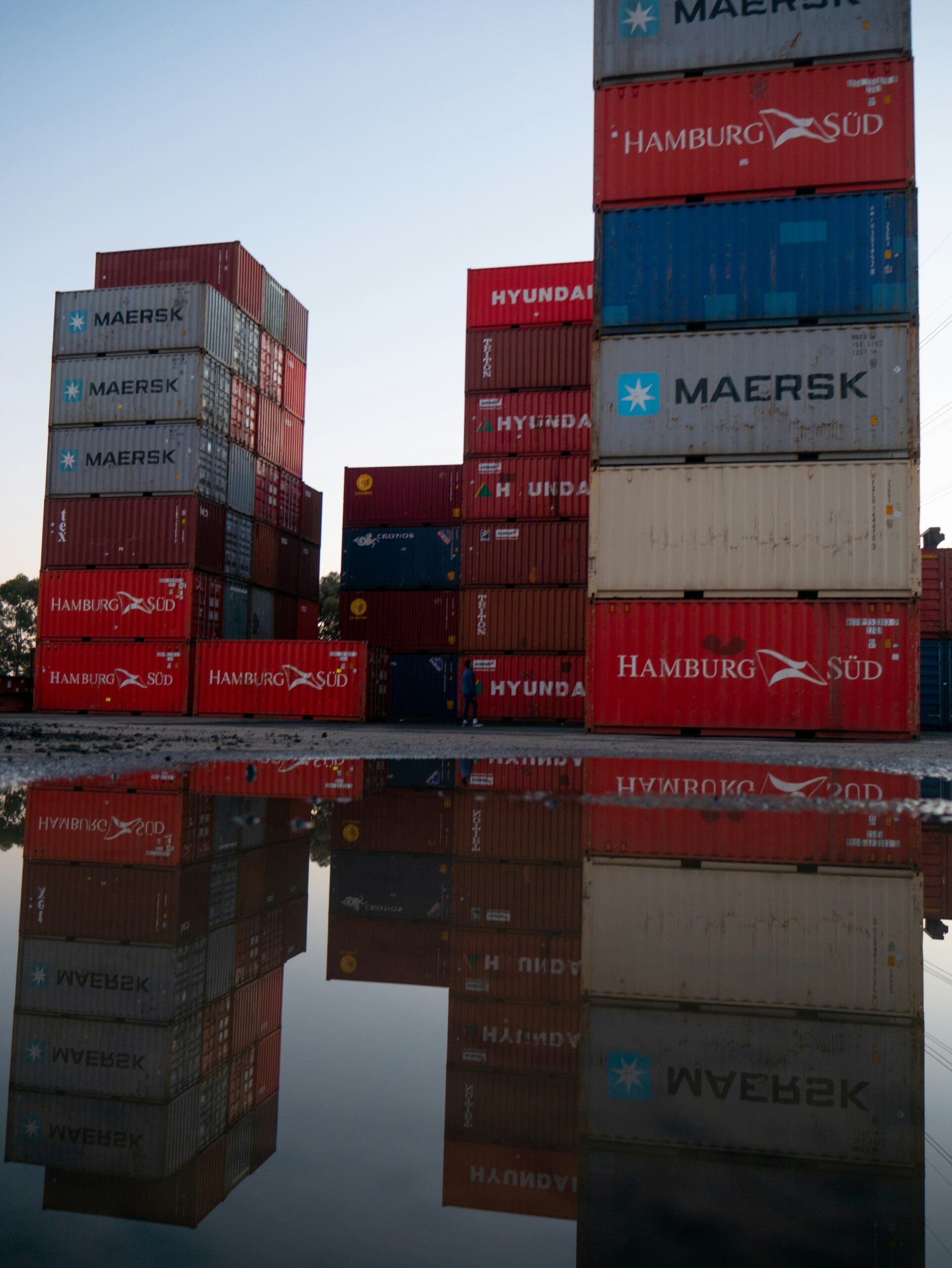Introduction to the Logistics Industry in the UAE
The logistics industry in the United Arab Emirates (UAE) plays a pivotal role in the burgeoning regional economy, serving as a key facilitator of trade and commerce. Given the UAE’s strategic geographical location at the crossroads of Europe, Asia, and Africa, it serves as an essential hub for international shipping and warehousing activities. This advantageous position allows for efficient transportation routes, reducing transit times and costs for businesses looking to tap into various markets.
The UAE boasts a modern and well-developed infrastructure, which includes world-class ports, airports, and road networks. Such infrastructure is crucial for the seamless movement of goods, effectively handling the increasing demand in logistics services, particularly with the rise of e-commerce and global trade. Notably, major ports like Jebel Ali in Dubai and the Port of Abu Dhabi have been instrumental in establishing the UAE’s reputation as a logistics powerhouse.
An additional competitive edge for the UAE is the development of free trade zones. These zones provide businesses with tax incentives, streamlined regulations, and 100% foreign ownership, encouraging both domestic and international firms to establish logistics operations within the region. As a result, the logistics sector is well-positioned to support a myriad of industries, including retail, construction, and manufacturing, ensuring that goods are delivered efficiently and effectively.
The logistics industry’s growth momentum is further complemented by developments in technology, with many companies adopting advanced supply chain solutions and intelligent logistics systems. This not only enhances operational efficiency but also responds to the changing landscape driven by consumer preferences and market demands.
Overall, the logistics industry in the UAE stands as a vital component of the economy, underpinning trade activities and directly contributing to the overall economic growth and diversification efforts of the nation.
Market Leaders: Profile of Major Logistics Companies
The logistics sector in the UAE is characterized by the presence of several major players, each contributing significantly to the region’s economy and trade facilitation. This section highlights the profiles of three noteworthy companies: DP World, Emirates Logistics, and Aramex.
DP World, established in 2005, is a global leader in the logistics and port operations field, with an extensive portfolio of terminals and logistics facilities across the globe. The company specializes in port management and has expanded its service offerings to include logistics solutions such as supply chain management and inland transportation. With a commitment to enhancing trade efficiency, DP World plays a crucial role in connecting businesses to global markets. The company’s innovative approach has facilitated its adaptation to the digital transformation sweeping the logistics sector, incorporating automation and smart technologies to streamline operations.
Another influential player is Emirates Logistics, which has been providing comprehensive logistics solutions in the UAE since its inception. This company excels in freight forwarding, warehousing, and distribution services, catering to a variety of industries, including automotive, retail, and construction. Emirates Logistics has successfully adapted to evolving customer demands by embracing technology that enhances tracking visibility and operational efficiency, ensuring timely deliveries and optimized supply chain processes.
Aramex, founded in 1982, is an international logistics and transportation company headquartered in Dubai. It offers a wide range of services, including express courier, freight forwarding, and e-commerce solutions. Aramex has leveraged its expertise to address the challenges associated with the rapid growth of e-commerce, providing tailored solutions that promote seamless shipping experiences for businesses and consumers alike. As the logistics environment continues to evolve, Aramex has prioritized digital innovations to maintain its competitive edge and satisfy customer expectations.
Milestones and Achievements of Leading Logistics Firms
In the dynamic logistics landscape of the United Arab Emirates, several companies have made remarkable strides that speak to their innovation and adaptability. One prominent name is DP World, renowned for its commitment to excellence in port operations and supply chain management. A key milestone for DP World was its strategic acquisition of Jebel Ali Free Zone, significantly expanding its operational capabilities and setting a benchmark for efficiency in the region. This acquisition not only bolstered its portfolio but also enhanced its competitive edge, allowing for improved logistics services across various sectors.
Moreover, Aramex has achieved notable recognition for its pioneering technology integration in logistics solutions. The introduction of their digital platform, which streamlines shipping processes and enhances customer experiences, exemplifies their commitment to innovation. Credentials such as the ISO certification for quality management further cement Aramex’s reputation in the logistics sector, reinforcing its position as a leading player in the UAE market.
Another significant contender, Emirates Logistics, has marked its territory through strategic alliances with international freight carriers. These partnerships have not only expanded its global reach but have also introduced new service offerings that cater to evolving client needs. Key projects, such as the development of their smart warehouse, demonstrate Emirates Logistics’ focus on enhancing operational efficiency and meeting the demands of modern logistics practices.
Additionally, the consistent recognition of these companies through prestigious awards highlights their commitment to quality and service excellence. Their achievements reflect substantial contributions to the UAE’s logistics infrastructure, positioning the region as a global logistics hub. These key milestones not only illustrate individual company successes but also signify the collective growth trajectory of the logistics sector in the UAE, paving the way for future innovations and advancements.
Future Trends and Challenges in the UAE Logistics Sector
The logistics sector in the UAE is undergoing significant transformation, with emerging trends that aim to enhance operational efficiency and sustainability. One of the key trends shaping the industry is the adoption of advanced technologies, such as automation and artificial intelligence (AI). These technologies are revolutionizing supply chain processes by enabling real-time data analytics, optimizing inventory management, and improving customer service. Companies investing in automated warehouse systems and AI-driven logistics software are likely to see increased efficiency and reduced operating costs.
In addition to technological advancements, sustainability has become a paramount focus for logistics companies in the UAE. The demand for eco-friendly practices is escalating, driven by global awareness regarding climate change and environmental responsibility. Companies are increasingly adopting green logistics initiatives, such as utilizing electric vehicles for transportation and implementing sustainable packaging solutions. This shift not only helps reduce carbon footprints but also meets the expectations of environmentally conscious consumers, ultimately leading to a competitive advantage.
Moreover, logistics firms must also navigate regulatory changes as the industry evolves. The UAE government is actively implementing policies aimed at enhancing trade facilitation and improving logistics infrastructure. Compliance with new regulations can pose challenges; however, firms that remain proactive in adapting to these changes will be better positioned to thrive. Continuous market analysis and strategic foresight will be essential for logistics companies striving for resilience in a fluctuating economic landscape.
The competitive landscape within the UAE logistics sector remains dynamic, with both local and international players actively vying for market share. Companies must develop innovative strategies that enhance operational capabilities while also focusing on customer-centric solutions. Embracing collaboration, whether through partnerships or technological platforms, will be crucial in maintaining agility and driving growth in this rapidly changing environment.











